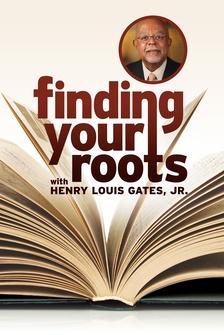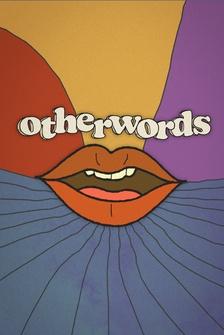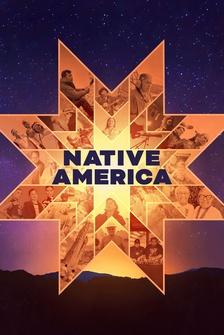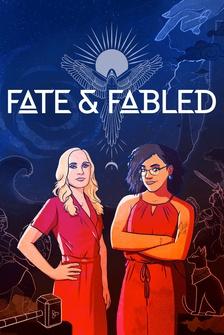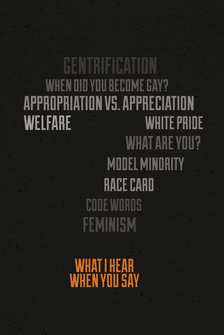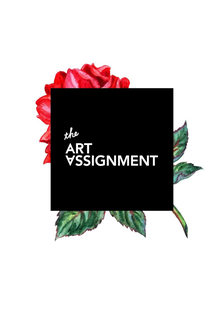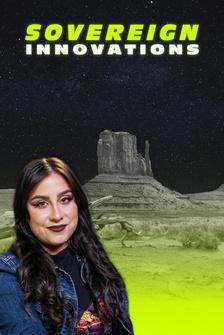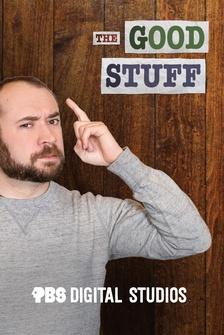>> NARRATOR: Coming up, on Weekends with Yankee, Richard visits Pond Hill Ranch, the East Coast's largest horse ranch, to learn about their rodeos, get a lesson in lasso roping and meet one of the barrel racers.
>> WIESE: You took a heck of a flip there.
>> Yep, unfortunately, it comes with the job >> NARRATOR: In Massachusetts, Amy explores the sand dunes in a vintage Land Cruiser, visits Barrier Island and ends the day with chowder at the Pelham House Resort.
>> TRAVERSO: I can't imagine a nicer place to be enjoying your delicious chowder.
>> NARRATOR: In Vermont, we meet contemporary artist, Peter Fried, to learn about his life and work.
>> I just can't imagine the world without art.
I just can't imagine it.
>> NARRATOR: So come along with us for a once-in-a-lifetime journey through New England as you've never experienced it before, a true insider's guide from the editors of Yankee magazine.
Join explorer and adventurer Richard Wiese, and Yankee senior food editor Amy Traverso, for behind-the-scenes access to the unique attractions that define this region.
It's the ultimate travel guide from the people who know it best.
Weekends with Yankee.
>> Major funding provided by... ♪ ♪ >> Massachusetts is home to a lot of firsts.
The first public park in America, the first fried clams, the first university in America.
The first basketball game.
What's first for you?
♪ ♪ >> Grady-White, crafting offshore sportfishing boats for over 60 years.
>> The Barn Yard, builders of timber-framed barns and garages.
>> And by American Cruise Lines, exploring the historic shores of New England.
>> NARRATOR: Nestled on more than 2,000 acres, in the heart of Vermont, sits a bucolic ranch and rodeo grounds.
Since the late 1800s, the O'Rourke family has been in the horse business.
>> WIESE: Welcome to Castleton, Vermont.
This is the home of the Pond Hill Ranch, the largest horse ranch on the entire East Coast.
And in a few hours, you will see the only weekly rodeo in all of New England.
>> NARRATOR: With cattle and bulls, and over 800 horses, the family has passed it's equines down over six generations.
>> I'm actually the fourth generation, maybe not on this property, but our great-grandfather bought a parcel that attaches to this one.
He was a farmer, and he traded horses and cattle.
He'd buy and sell horses, and go all over the country looking for them.
And we also have a big lease horse business where we lease over 800 horses to children's camps and resorts, and dude ranches, and stuff like that.
And then, along with that we have a rodeo, we board horses, have the trail riding, do lessons.
So, we do a lot with horses.
(Richard clicking teeth) We're in the saddle pretty much every day.
>> NARRATOR: The Western way of life is embodied in New England's biggest and oldest weekly summer rodeo, which dates back to 1968.
>> WIESE: What's the big appeal, do you think, that people have for rodeos?
>> It seems to me if you're out in the country more, people want to see things that are outdoors, and that Western way of life is really in right now.
And it's just getting out and being with animals, being with guys that are good enough to get on a bull or a bucking horse.
And well, there's them guys too, that have that adrenalin rush and want to be a cowboy and want the Western way of life.
>> NARRATOR: Pond Hill Ranch Rodeo draws seasoned competitors from across the country, as well as New England locals.
Meet roper, Nate Viera.
>> WIESE: Hey, you're from outside of Boston in Massachusetts, yet you're a roper.
How does that happen?
>> It's just something I've always liked.
I liked watching rodeo on TV as a kid, and just loved it, and decided I wanted to get into it.
I rope tie-down calves.
>> WIESE: And how does that work in competition?
>> You leave out of the box there, rope a calf as fast as you can, get off your horse, and lie them on the ground, and tie three legs together.
(man speaking over P.A.)
>> WIESE: How often do you come up here?
>> I come here every Saturday.
>> WIESE: How long does it take you to get here?
>> Four hours.
>> WIESE: You do this four hours every weekend?
>> Every weekend.
>> NARRATOR: Some of the youngest competitors are in high school.
>> WIESE: What got you into the idea of uh, roping calves and rodeos?
>> Uh, my grandfather did it and my dad did it.
>> WIESE: Oh, so you're third generation rodeo.
>> Yeah.
My dad started when he was about, like, uh, 17, about my age.
And then, I got into it when I was born, pretty much.
You got to figure out what your horse is going to do.
You got to figure out what you're going to do.
You got to just get it in your mind.
(man speaking over P.A.)
>> WIESE: All right.
Do you think you could teach me how to rope?
>> I probably can.
>> Swing it.
>> WIESE: Swing it which way?
>> Around your head.
>> WIESE: Around my head.
>> And then, you're going to turn your hand over, and you're going to come back like this.
>> WIESE: Okay.
>> Make that bigger.
>> WIESE: Make the... yes, please.
>> Make it big.
>> WIESE: Make it huge.
>> Yeah.
>> WIESE: Around like this, right?
>> Yep.
>> WIESE: Like this... >> And look at that spot and toss it on that.
Look at that.
>> WIESE: Ugh.
I, I want to do it again.
>> Almost.
>> There you go.
Like you're throwing a baseball at that target.
There you go.
(Richard yells) >> Cowboy.
♪ ♪ >> WIESE: You're obviously in the rodeo pen right now when it's empty.
Give me an idea of the atmosphere that's going to be here in, you know, a few hours.
>> It's a feeling like nothing else.
It's unbelievable.
>> Oh, she got it.
Oh, she had it!
>> Because we ranch for a living, we keep the raw sport of rodeo in front of us, in front of the crowd all the time.
And so, what we always start with usually is the bareback bronc riding.
That's, that's with the bucking horses as well.
A guy wedges his hand into a, into a rigging, they call it.
There's a, there's a handle up on top, much in nature of a suitcase handle.
Wedges that hand in.
It's with a glove that's rosined.
Tries to stay on for eight seconds.
There's some technique that goes with that, too.
(man speaking over P.A.)
(crowd cheering) >> Whoo!
(crowd groans) (buzzer sounds) >> NARRATOR: Judging these cowboys is one of the toughest jobs here and Bud has been doing it with pride for the last 55 years.
>> (voice breaking): If anybody ever told me that...
...I would've been here every Saturday night of my life, I'd have probably told them they're crazy.
But it's something that gets in your blood, I think.
It's, it's just... ...it's just rodeo.
It's a great sport.
There's great people.
It's a family sport, you know.
We got friends all over the country and up and down the East Coast.
(horse whinnies) And, it's, I don't know how you say it.
You just build friendship through, through the sport.
>> NARRATOR: One of the evening's crowd-pleasers pits rider and horse against the clock.
>> Barrel racing is probably one of the largest events that they have in rodeo.
It is a timed event and you run through a chute or an alley and there's three barrels set up in a cloverleaf pattern.
You can go either right or left and whoever does it the fastest wins.
After I graduated high school, I got married, had kids.
I got out of horses for a while.
Got back into barrel racing and here I am.
>> WIESE: What is it that you think makes you a champion rider?
>> I really kind of give it all to my horse.
She's, she's a one in a million, a very special horse, and she has taken me places that I never thought I'd go.
>> WIESE: Tonight, when we watch you, what should we be looking for?
>> I mean, you're looking for the quickest horse.
They all have different styles.
Um, The horse that I'm on, I actually bought her here as a three-year-old.
I took my time with her and she's, she's a rock star.
>> WIESE: Well, we wish you good luck tonight.
>> Thank you.
>> WIESE: We'll be watching.
>> NARRATOR: But, the most anticipated event of the evening: the bull riding.
>> You know, we raise all these cattle for the bucking program that we have and stuff.
So, they live a good life.
Heck, most of these bulls and bucking horses only buck about three times a year.
Yeah, if you've got on a bull or even a bucking horse as well, if you've got your hand wedged in, whether it be that rope or rigging or whatever, the clock stops at eight seconds and the buzzer rings.
You've got to get yourself back on the ground and into the fence, safely.
We got two of the best bullfighters that we know of in the Northeast that, that are working for us that are the cowboy lifesavers, you might want to say.
>> So, my role is when the cowboys buck out of the chutes on bulls... ...to take the bull away, make sure the rider is safe and take the hits if I need be.
(chuckles) >> WIESE: When you say take the hits, so... >> Some of the bulls will, like to hit stuff when they come out, you know, it's part of the game.
>> WIESE: How much do these bulls weigh?
>> Uh, anywhere from probably 1,600 to 2,000 pounds, some of them even bigger.
>> WIESE: So, three-quarters of a ton... >> Yeah.
>> WIESE: ...to a ton.
And how much do you weigh?
>> Uh, 170 pounds.
>> WIESE: Wet?
>> Yeah.
(laughs) Yes.
(man speaking over P.A.)
>> Go!
There you go, get up!
>> The bull comes out, we kind of just try to stay still.
We don't want to interrupt the bull or the rider at that time.
So, we try to stay still, but within a distance that we can be there.
>> WIESE: You're a bull rider and that's a pretty bad (bleep) sport.
What's the most common reaction or questions you get?
>> Danger.
Basically, "Isn't that dangerous?
Aren't you worried about getting hurt?"
And most of the time the answer is, "It's part of it."
>> WIESE: I mean, once you're on a bull, what can happen?
>> You're down in there and you've got 2,000 pounds of animal that's doing its job.
(man speaking over P.A.)
(crowd clamoring) (man speaking over P.A.)
(buzzer sounds) >> I mean, it's probably the most fun you can have in eight seconds.
>> WIESE: Really?
See, to me, I would think it'd be some of the most terrifying.
>> We know that's the risk we take, but if you love it, you continue doing it.
(metal clanging) >> (on P.A.
): Whoo!
(crowd groans) >> WIESE: I got to ask you, how you feeling?
>> A little banged up.
>> WIESE: A little banged up.
I mean you took a heck of a flip there.
>> Yeah, unfortunately it comes with the job.
>> NARRATOR: The Pond Hill Ranch Rodeo came to a close with everyone doing a spectacular job, from the riders to the ropers, and horses to bulls.
But the one thing that prevailed was the feeling of community and family.
>> Since I started roping, it's brought a lot of friends.
It's really humbled me.
>> And I mean, I've traveled all of the U.S. and... ...this, this is home.
>> They say, you know, once you rodeo and you meet people, they're family, and, and it's the truth.
>> I think it's, it's not a job, it's a way of life.
♪ ♪ >> TRAVERSO: I am going to be living out my Cape Cod bucket list today.
First, I'm going out on the dunes with my new friend Ian O'Connell to a lighthouse.
And then, I'm going to be making chowder by the beach at the Pelham House Resort.
Let's get started.
♪ ♪ So, tell me about kind of where we are right now and where we're headed.
>> Well, we're on the outer beach of Sandy Neck It's a seven-mile spit that sticks out between the Cape Cod Bay and the Great Salt Marsh... >> TRAVERSO: Uh-huh.
>> ...on the other side.
Oh, yeah.
This whole thing is open to the public.
You can get an off-road sticker and come all the way out, pretty much as far as the tip, except when the birds are spawning, the plovers.
You can come here by boat on either side.
You can walk the trails.
There's camping areas.
>> TRAVERSO: Wow.
>> You can actually ride a horse out here.
There's horse trails.
>> TRAVERSO (chuckling): Oh, that's cool.
>> Yeah.
There's an aquifer under it.
You know, we have houses out here.
We put a well underground and get fresh water out right in the middle of the sand.
>> TRAVERSO: Wow.
>> It's a special place.
>> TRAVERSO: There's this whole culture on going out in, like, a Jeep or a Land Cruiser and just like driving in the dunes or coming out at sunset.
What is it?
Is that like a Cape thing?
Is it a beach thing?
>> I think it's, it's an off-roading thing.
You know, every part of the United States has a different type of terrain, and you know, some have mud... >> TRAVERSO (laughing): Yeah.
>> ...and some have really big sand hills and rock.
I guess all we have here is sand, so... >> TRAVERSO (laughing): Yeah.
>> You know, this is how we get our thrills, you know, off-roading.
(Amy laughing) There's something about literally, you know, coming, cresting the dune and coming out on the front beach and knowing you have a half an hour ride ahead of you and, you know, just roll the windows down and enjoy the scenery.
>> TRAVERSO: Yeah, it's beautiful.
So you need a four-wheel drive car, right?
And you need to let the air out of the tires?
Give me some, like, three tips that you need.
>> (chuckles) Airing down's important just for traction.
It widens the path of the tire and the amount of grip the tire can put down in the sand.
Don't have your thumbs inside the wheel.
>> TRAVERSO: Uh-huh.
>> Because if you hit something and the wheel can, can knock over one way, you could actually break a finger.
>> TRAVERSO: Wow.
>> So, you want to keep your hands on the outside steering wheel.
Really just try to keep your momentum, don't come to a sudden stop.
You could really get yourself in trouble in terms of burying yourself in the sand.
>> TRAVERSO: Mmm.
>> You know, keep your momentum.
Keep your speed constant.
Especially when climbing a hill.
You know, you need to just, sort of like, effortlessly climb over it.
>> TRAVERSO: Yeah.
>> You don't want to be, make any sudden maneuvers.
>> TRAVERSO: Well, I feel like today I'm kind of checking items off my bucket list.
I got to go duning.
This lighthouse is so beautiful.
The scones are incredible, the coffee is great.
And now, I'm going to go get to make chowder by the beach at the Pelham House.
>> (chuckles) >> TRAVERSO: So thank you for the beginning of a perfect day.
>> Cheers.
(both chuckle) >> NARRATOR: Overlooking Nantucket Sound, the Pelham House Resort is on the forefront when it comes to hospitality and is a Cape Cod hotspot.
Amy visits Chef Dan Coté to learn how he makes his legendary clam chowder.
>> TRAVERSO: So, Chef, it's so nice to be here.
Thank you for having me.
>> We're going to make some chowder, yeah.
>> TRAVERSO: All right, well let's get started.
What do you want me to do?
>> All right, so if you want to start by cutting the celery about a half-inch dice.
>> TRAVERSO: Dice?
Okay.
>> And I will start by cutting the onion.
And we're going to get our burner on and sauté it up.
>> TRAVERSO: Okay, perfect.
So, tell me about this recipe.
Like, what to you is important in a good clam chowder?
>> To have enough items in there that it doesn't, it doesn't feel cheap, you know?
>> TRAVERSO: Yeah.
>> You want it to feel like a good robust soup.
We're actually going to add some more bacon fat.
>> TRAVERSO: Cause fat is flavor, right?
>> Fat is flavor.
So we render this down every morning with our breakfast bacon, and we save it.
Save your bacon fat.
>> TRAVERSO: Save your bacon fat.
It's always good to have in a can in the fridge.
>> So we're going to melt that.
So we're getting ready to add our flour to create our roux and this is what's going to thicken the chowder.
>> TRAVERSO: Right.
>> You need equal part fat to flour.
So, the recipe has about a half a pound of fat, after it's rendered down to a half a pound of flour.
>> TRAVERSO: Perfect.
>> So, you can slowly add that.
>> TRAVERSO: I love to watch it thicken.
It just feels like magic... >> Uh-huh.
>> TRAVERSO: ...somehow, like, whoa!
>> And you want to turn down your flame a little bit... >> TRAVERSO: Right.
>> ...you don't want to burn the flour.
But you do want to cook the flour because you need to cook it out a little bit so it doesn't have that, that flour taste.
>> TRAVERSO: Yeah, if you really want to go, like, old school, you could... ...steam the clams, right?
>> Yep, yep.
>> TRAVERSO: And then, you can save the liquor from the clams and use that as your...
But we live in a modern time.
>> (chuckles) >> TRAVERSO (laughs): And you can use... Canned clam juice, so much easier.
So, yeah.
And also, the quality of frozen clam meat...
I'm not a big fan of canned clam meat usually, but the frozen stuff is usually great.
>> It's, it's not bad.
We, however, we do, we do get our clams right out here in Nantucket Sound.
They get us our surf clams.
They chop it up in their processing plant.
>> TRAVERSO: Oh, beautiful, so it's super fresh.
>> All that clam juice is, it's already in there.
So, we're going to add some of these clams.
>> TRAVERSO: Okay.
>> And then, we're going to add some clam juice.
>> TRAVERSO: Yes, tell me when.
>> We'll do about half of that.
>> TRAVERSO: Okay.
And one thing I love about this spot, and where this resort is, is you get this uninterrupted view of the ocean.
A lot of the Cape, you're sort of seeing the mainland or you're seeing, you know, the curve.
It's just so beautiful when you look out and see flat.
>> So, a couple of secret ingredients here.
>> TRAVERSO: Yes.
>> We put oregano and dill into our chowder.
So we can add the dill right in.
>> TRAVERSO: Okay.
>> And then this oregano, we can just chop up.
>> TRAVERSO: Make a little bunch... Oh, that oregano smells so good.
So not everybody puts herbs in their clam chowder, but it can add such nice flavor.
>> Yes.
So I'm going to add the potatoes now.
>> TRAVERSO: Okay, this is ready whenever you want it.
>> Okay, you can pop it right in.
>> TRAVERSO: Okay, there we go.
>> So this is our base.
This is our chowder base.
All this can cook for five, ten minutes.
>> TRAVERSO: Okay.
>> To the recipe, we add about two cups of cream to the base.
>> TRAVERSO: Mm-hmm.
>> But it's really, if you're doing this at home, you can add as much cream as you want to get to the consistency that you're looking for.
>> TRAVERSO: It's pretty adaptable.
Like, if you want it thicker, you do less.
If you want it thinner, you do more.
>> So, you tell me how thick you want your chowder to be.
(Amy laughs) >> TRAVERSO: Uh, that looks great, right just where you have it... >> Perfect.
>> TRAVERSO: ...I think.
Beautiful.
Is it ready now?
>> It's ready now, yeah.
>> TRAVERSO: Great, wow.
Mmm.
Oh, that's so good.
And it's funny, those, the herbs, the oregano and dill... >> Mm-hmm.
>> TRAVERSO: Never had them in chowder.
I'm totally converted now.
They are really, really good in there.
So when people come here, to any of your restaurants, really, what do you want them to feel when they come?
You know, what kind of experience do you want them to have?
>> So we're not a, a "normal" Cape Cod restaurant, any of the restaurants.
It's really a variety of dishes.
We get a lot of staff from out of country.
Different visas help us out in the summertime.
>> TRAVERSO: Mm-hmm.
>> We have Filipinos, we have all different Latin countries, and they all throw their twists on these seasonal outlets that we have.
So I like to involve everybody.
>> TRAVERSO: Fun.
>> I have a few different chefs that run the restaurants.
And they're the ones working every day on the line.
So I want their input, and they're the ones helping make the menu.
So it's really, a pot of around the world, everywhere.
>> TRAVERSO: Yeah, to have that, like, flavors from all over the world is really special.
>> And again, we change seasonally, so we're always changing.
We get bored of what... >> TRAVERSO: Yeah.
>> ...we're cooking, and we want to try new things.
You know, sometimes it works, sometimes it doesn't.
>> TRAVERSO: Right.
>> But we like to experiment.
>> TRAVERSO: Yeah, well, I can't imagine a nicer place to be enjoying your delicious chowder and I'm definitely converted to the herbs, and the scallops, and the po'boy, it's so good.
And just thank you so much for having me.
>> You're welcome, thank you very much.
♪ ♪ >> NARRATOR: Vermont artist Peter Fried brings a fresh eye to landscape painting and finds inspiration in settings often overlooked.
Born in what was Czechoslovakia, he grew up in Scotland, and then studied art in London.
He came to Vermont in the 1990s and resides in Vergennes.
♪ ♪ >> Don't look for something interesting to draw, draw something, and it'll become interesting.
There's something about the process of drawing, in particular, which compels you to observe and look in a way that you could never discipline yourself to do unless you were making a drawing.
So, so it's a logical proposition.
Because if you make a drawing of a scene, and you have recorded everything in that scene, it means that you've looked at every single thing in there.
(car passing by) ♪ ♪ In Vermont, there's this incredible push, as it were, towards painting and drawing sugar houses and barns, and ridge lines, and lakes, and sunsets, and so on.
And I love that stuff, but there's something about the way I work, which is about wanting to be in the real world, the world that I, I actually encounter and inhabit.
I do landscapes, you know, figurative painting.
Very occasionally, I do figure in landscape or portraits.
And then for, you know, many years now, I don't know, 20, 30 years, I've been doing these minimalist abstract grids that are seeded from, they're kind of homage to Agnes Martin.
The grid basically represents order, symmetry, predictability.
What's really beautiful about the grid for me is that they can be injured, then they can be healed.
When I'm walking around or driving around, if something arrests my attention, I just completely trust that.
I try never, ever to second guess it.
And usually, you know, if I'm walking along and I'll have that feeling, that moment, I'll basically stop and take a picture of it.
And then, it's an odd sort of process that can happen, where I develop an affinity or a curiosity about a place.
And then, there's an odd feeling of loyalty.
It's really odd.
It's sort of indescribable.
I'm there in all weathers and seasons, and over the years, and then I make several paintings of it.
Then, it becomes more and more.
It's almost like a kind of emotional GPS that begins to develop, you know, around it.
(scraping) You know, I'm definitely from away.
You know, I was born in what was Czechoslovakia and grew up in Scotland, lived in London and so on.
So for me, America has this, this sort of, a certain kind of allure.
You know, it's sort of a...
Sorry.
(chuckles) (voice breaking): Yeah, it's sort of a... ...like a kind of mythical draw, you know.
It's like the "shining city on the hill."
And I wanted to say that without any of the sort of, political, you know, partisan ramifications.
But, for people who went through hell in Europe, you know-- my father was in the Holocaust and so on-- you know, America represents, frankly, a kind of safe haven, you know.
And so, I have this... ...incredible love, you know, for America.
(exhales deeply) ♪ ♪ The other component of that is that there's something about American practicality, you know, that I personally adore.
I'm just extremely interested in the way that practical, utility-driven infrastructure relates with, kind of, bucolic pastoral landscape.
And so, there's something very interesting about, uh, the process that artists may be involved in.
Where in hindsight, they realize that there were a whole list of priorities, and fascinations, and agendas that were very unconsciously set and can only be recognized once the paintings are made, once the drawings are made.
So, what's very interesting to me is that, I will just keep working.
And then, I'll recognize all kinds of through lines in the work.
There's a café I go to all the time and I meet just unbelievably interesting people there.
Almost like acts as a sort of community center.
I really like Vergennes a lot.
It claims to be the smallest city in America, I think, and first incorporated city in Vermont.
It has this incredible way that it sort of leans into the vastness of the West, the American West, through the Adirondacks and so on.
And then, has this sort of intimacy and warmth of the Green Mountains on its other shoulder.
Lovely place.
It's odd actually having to say this because it's different now.
But when I lived in London, or when I traveled to New York and Boston, more often, I would go to great museums all the time.
I just can't imagine a world without art.
I just can't imagine it.
You know, it's so important to me.
Art makes me want to live, you know, and it makes me want to love.
And so why not contribute to that?
>> NARRATOR: For exclusive videos, recipes, travel ideas, tips from the editors, and access to the Weekends With Yankee digital magazine, go to weekendswithyankee.com and follow us on social media, @yankeemagazine.
Yankee magazine, the inspiration for the television series, provides recipes, feature articles, and the best of New England from the people who know it best.
One year for $20.
Call 1-800-221-8154. Credit cards accepted.
>> Major funding provided by... ♪ ♪ >> Massachusetts is home to a lot of firsts.
The first public park in America, the first fried clams, the first university in America, the first basketball game.
What's first for you?
♪ ♪ ♪ ♪ >> Grady-White, crafting offshore sportfishing boats for over 60 years.
>> The Barn Yard, builders of timber-framed barns and garages.
>> And by American Cruise Lines, exploring the historic shores of New England.
♪ ♪

